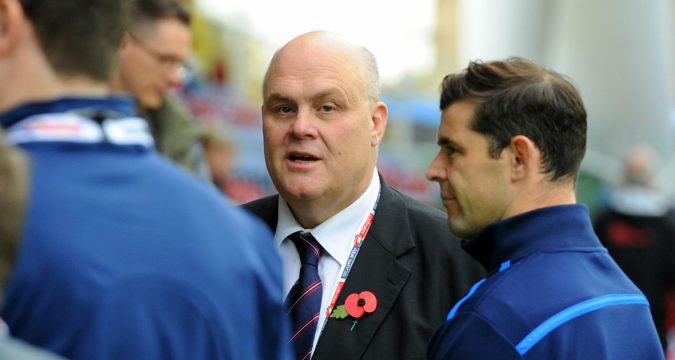
League Express editor MARTYN SADLER considers the apparent contradiction between declining revenue and growing numbers of wealthy investors
This is a slightly modified version of a piece that appeared in his ‘Talking Rugby League’ column in this week’s League Express.
Super League clubs have had to face serious financial problems in recent years.
That’s because the money generated for the game by Sky Sports broadcasting contract, which had been £40 million per year under the broadcasting contract negotiated by the RFL’s former chief executive Nigel Wood in 2014, has now fallen to £21.5 million per year under a deal negotiated by IMG last year.
And to be fair to IMG, Matt Dwyer claimed in a recent media briefing to which I, somewhat surprisingly, wasn’t invited, that the original offer from Sky was significantly below that figure.
The point is that as the broadcasting income has been reduced, so has the centralised income to the individual clubs throughout the Rugby League pyramid.
On the other hand, the cost base of Rugby League clubs hasn’t been reduced. The salary cap, for example, has risen, admittedly marginally, in recent years.
So who is plugging the gap?
That comes down to the club owners, who are now having to fund collective losses by Super League clubs amounting to as much as £20 million per year.
So it’s quite remarkable, and extremely fortunate, that we still find wealthy individuals stepping forward to take over clubs to keep them competitive.
We’ve seen Paul Sewell at Hull KR, Matthew Ellis at Wakefield, Martin Jepson at Castleford, Mike Danson at Wigan and, last week, Andrew Thirkill and David Wood at Hull FC all stepping forward to take ownership and/or shore up the finances of those clubs so that they can continue to compete at a high level.
It seems counter-intuitive to assume that wealthy new owners will come forward when the income profile of the game is declining. But the supporters of all the clubs I’ve mentioned, as well as the clubs that have had wealthy owners for many years, should feel grateful that they are still prepared to dig deep to support their clubs.
We’ve now got to the stage where only one club in Super League doesn’t have a wealthy backer and that is Salford Red Devils.
Last week we invited Salford chief executive Paul King to join the League Express Podcast to talk about the game and about his club in particular and we asked him whether the Red Devils are close to having a major backer of their own.
Paul appeared to suggest that there isn’t one on the horizon.
And yet the idea that a club lying in the heart of a major conurbation can’t find a wealthy individual who would like to invest in them seems quite remarkable to me.
The Red Devils came fourth in Super League in 2024 and that is an extraordinary feat for a club at which money is so tight, particularly when they are not yet secure in their stadium, given the delay in Salford Council being able to confirm that it has bought out the half-share of the stadium owned by Peel.
If and when that happens, the attraction of Salford Red Devils for any potential investors should rise substantially.
If you are a multi-millionaire who hankers after owning a major Rugby League club, I suggest you watch or listen to our podcast, which is an extremely interesting discussion, and get in touch with Paul King.
You might end up being somewhat poorer but you will have a lot of fun.
Click here to get the digital edition of League Express
Click here to subscribe to the print edition of League Express
League Express is also widely available from local newsagents across the north of England.
